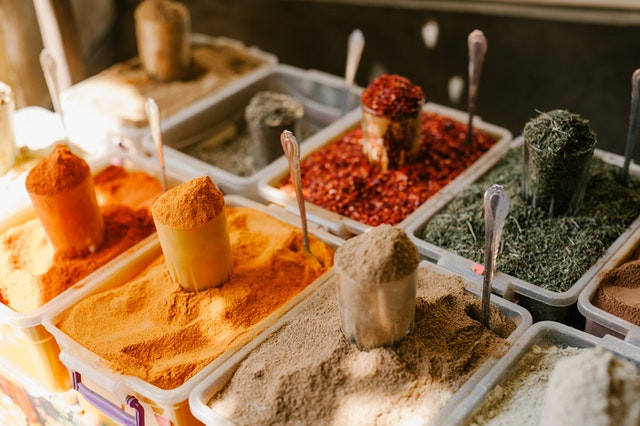
Why is Bulk Shopping Not Mainstream?
17th Feb 2020
What is Bulk Food Shopping?
Bulk shopping is good for the environment and (sometimes) good for your wallet ... so why doesn't everyone do it? You've probably heard of it—that hippie movement associated with shelves upon shelves of nuts and pastas in huge boxes, a scoop provided for filling your own bag, shoppers walking in with containers jangling ready to take up the entire counter space. And, most of the time, this is exactly how it would be. Bulk shopping means that the food does not come pre-packaged in plastic—or aluminium, or cardboard. The idea is that you BYO boxes or bags to fill with as much lentils, seeds, or chocolate as you like. Often, bulk foods will be organic as well—it generally goes with the territory.

So … Why Should you Buy Bulk?
Bulk shopping is one way people can reduce their plastic consumption. The main reason people buy bulk is to reduce their plastic consumption. Often, it is to reduce their grocery costs as well, as bulk can sometimes (not always) be cheaper than supermarkets. Others enjoy the organic nature of the food available. And yes, some people buy bulk because bulk is hip.
Why Don't you Buy Bulk?
However, bulk shopping needs to fit into our society of convenience. Bulk shopping is not convenient. I say that, as someone who is a dedicated convert of bulk food. It is not convenient. First of all, you have to know exactly what you want to buy before you leave the house, so you can plan your containers accordingly. If you walk into the bulk shop and see those macadamia nuts that you're just craving, but haven't got enough boxes for them, well … too bad. For someone who may be juggling a job, kids, pets, housework, and a garden—you can just imagine how much headspace they have left for planning their shopping. Then you have to weight all your containers. Unless you are using those mesh bags that weigh about 0.03 of a gram, you have to put your containers on the scale and either tare the scale—which means no one else can use it while you are filling your box—or write the weight on the box, which means the cashier has to do the maths later. And what about if you want nuts, flour, and tea leaves—as you can get from the bulk shop—as well as broccoli, milk, and frozen peas? You can either go to your local supermarket and then drag your shopping to the bulk shop—or you can decide to make it quicker and easier for yourself and just go to the supermarket. In a time-poor world, what do you think you would do? So in order for bulk shopping to really take off in the mainstream, something in the way we do it has to change.
What Does that Mean?
Let's create demand for bulk shopping ... and maybe then will it become more mainstream (and convenient). Well, bulk shopping has to be convenient. We no longer have a whole demographic of housewives who have nothing better to do than plan their shopping. We have a society of busy, working, men and women, and someone has to do the groceries. We need bulk shopping to be more automated. Supermarkets trust customers to scan their own items on the way out, so why shouldn't bulk shops trust us to weigh our own containers? We could print out barcodes which are pre-programmed with the weight of the container, and so when the cashier scans them they automatically subtract the container weight from the weight of the container + food. Bulk shops on their own will not be viable in the near future, as we all get more time-poor and more used to convenience. There are already supermarkets that have a bulk section—this needs to become the norm. Bulk shops are hip, and they are more environmentally friendly, but unless they can adapt to suit a society which is accustomed to having everything at a moment's notice, they will fade into obscurity. There are many bulk food shops around Australia. Have a look for your closest one and give it a try. For bulk food to become mainstream, first there must be a demand.
For suggestions on how you can have a more sustainable 2020, have a read of this article on our blog. To read about why we should reduce our plastic consumption, check out BioPak's website—and to find out how you can reduce your own plastic consumption, see this article.
Planet Friendly Packaging acknowledges the traditional custodians of the land on which we work.
